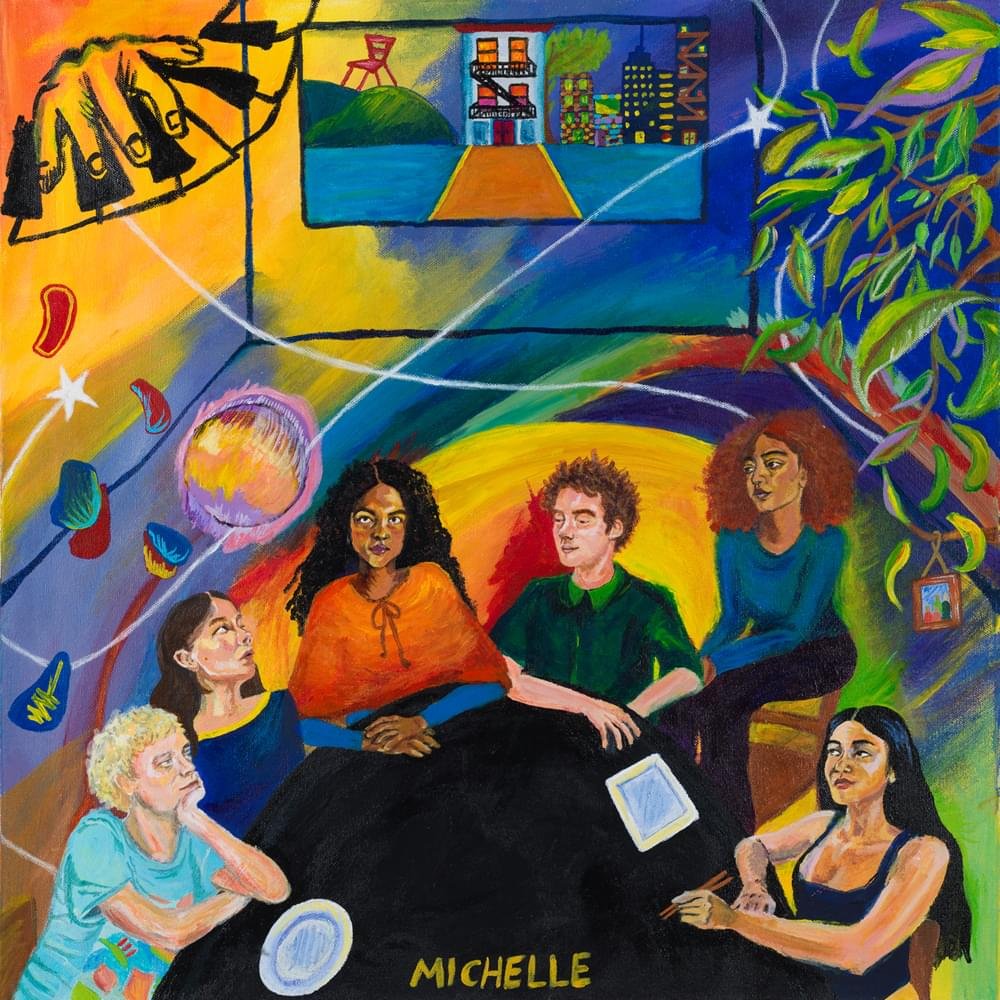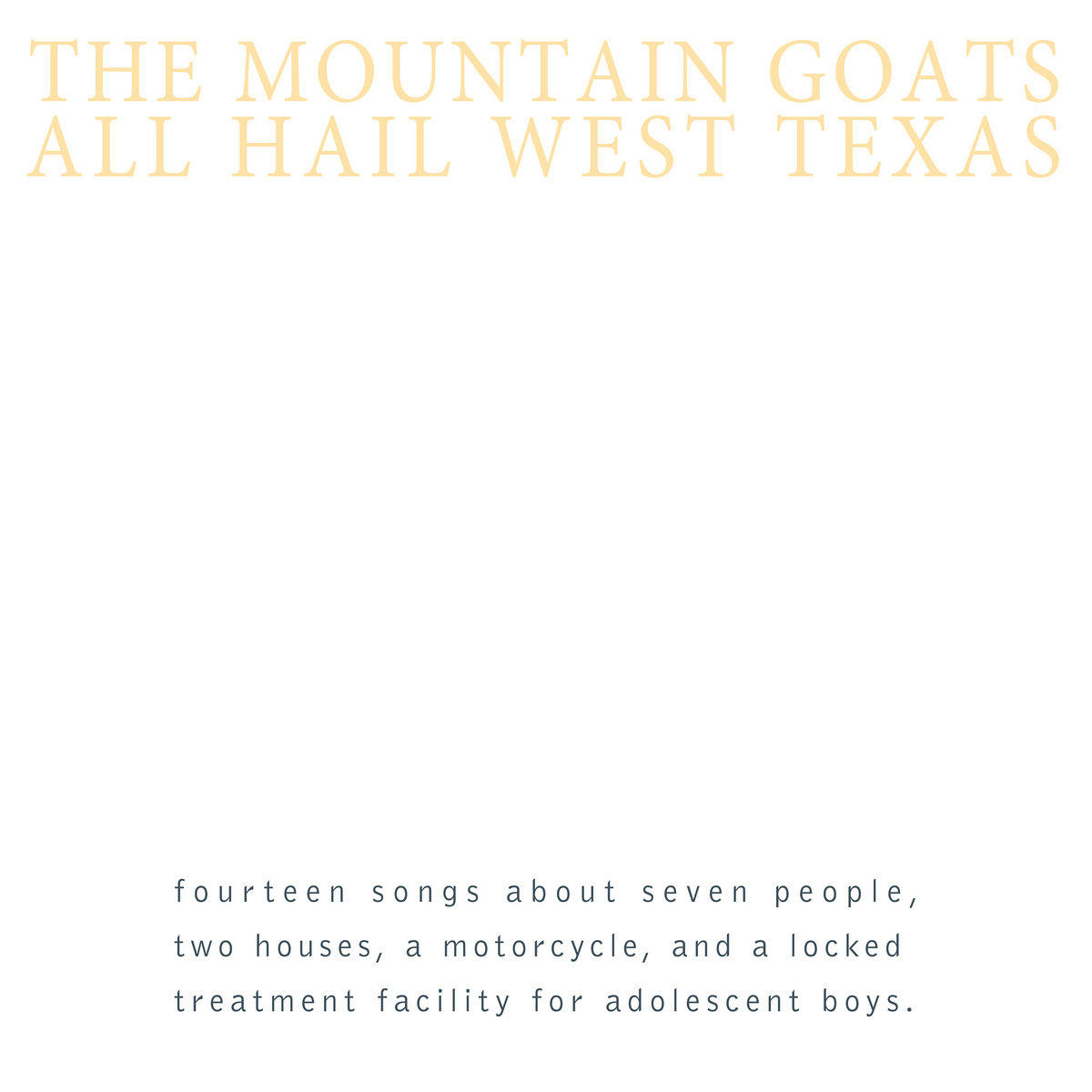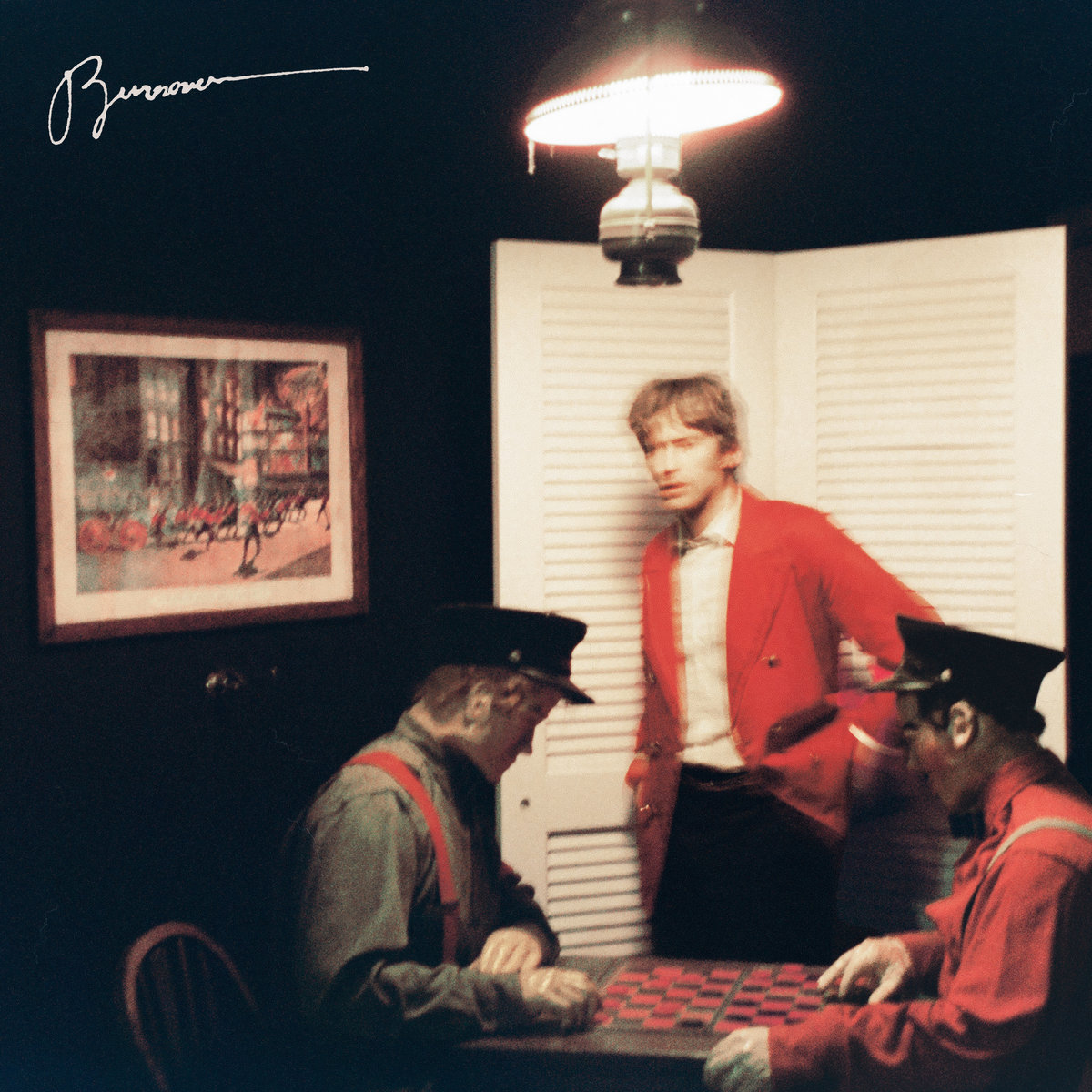Reclaiming Wolfmother
/Look, I’ll come out and just say it: Wolfmother rules. When the Australian rock band’s debut album was released in 2006, it quickly became skewered for a number of reasons ranging from legitimate to completely superficial. Amongst the Pitchfork indie music crowd, this album came hot on the heels of bands like Jet, who were taking the leather-jacket-clad aesthetic of The Strokes and Interpol but commercializing it even further into a less-cool version of AC/DC karaoke. In the broader pop culture landscape, Wolfmother quickly became synonymous with video game soundtracks and commercial rock music. “Woman” specifically struck a marketable trifecta of then-still-cool Jack White affectations, a simplistic riff you could air guitar along to, and a five-syllable chorus that anyone could belt out in their most cartoonish rock and roll voice. It was iPod Commercial Music at worst and admirable psych-rock revivalism at best. But I love it all the same.
To a certain extent, Wolfmother paved the way for bands like Greta Van Fleet, who are picking up the torch of my dad’s music and seeing how far they could run with it. Upon release, Wolfmother instantly received comparisons to Led Zeppelin, Jimmi Hendrix, and Black Sabbath alike. While not entirely accurate, lyrics like “The purple haze is in the sky / See the angel's wicked eye” didn’t exactly do a lot to combat those connections.
Simply put, Wolfmother’s debut was, and still is, a fascinating album. More than that, it actually kinda kicks ass. No two songs sound the same, resulting in a record that never drags despite its nearly one-hour runtime. I’d get it if you don’t like the sound that this band is going for, but part of me listens to this album in 2022 and doesn’t understand how anyone could hate on this. I’ll admit, as someone who first heard this record at 13 years old, it is inextricably tied to an early-adolescent appreciation for “Rock Music” with a capital R. In other words, this is all highly biased but still a genuine attempt to translate the redeeming qualities of Wolfmother to an audience who otherwise probably couldn’t give two shits about it.
Along with fellow Guitar Hero II alumni The Sword, Wolfmother is often cited as an important part of the second wave of the modern stoner rock revival. Propped up by placements in mainstream video games ranging from the aforementioned Guitar Hero II to Madden NFL 07, Wolfmother quickly ascended to popularity at an unprecedented rate. However, this popularity soon became a double-edged sword as the group reached a saturation point in music licensing and radio play. Even a cursory glance at the band’s video game soundtrack page reveals a staggering sixteen placements between the years of 2006 and 2007 alone. And this isn’t even counting usage in television shows, movies, or NFL commercial break interstitials.
It’s no wonder why people started to turn on this band so fast; there are only so many times you can hear “WOman, ya know ya, WOman, ya know ya, WOman” before you want to pull your own hair out. But for a thirteen-year-old music lover just discovering the world of classic rock, Wolfmother represented a grander cultural affirmation that I was pointed in the right direction. I distinctly remember thinking some variation of, ‘oh wow, there are still bands making music like this.’ These songs felt like a natural extension of the genre I had just uncovered and fallen in love with. It felt like I was witnessing the extension of a lineage. Everything felt connected, and for a moment, my burgeoning music taste made complete, logical sense.
I delved into Wolfmother unencumbered. The group’s debut album quickly worked its way into my rotation alongside classic acts like The White Stripes, Guns N Roses, Nirvana, and everything else a young boy could want on his 4GB iPod Mini. Wolfmother became a quintessential album in my musical world, standing shoulder to shoulder with classic records like Are You Experienced? and Led Zeppelin IV, and somehow it fit in seamlessly.
Today I listen to Wolfmother with a tinge of shame, but only because most of the world remembers them as the band that wrote “Woman” and “Joker and the Thief.” This is partly due to how massive the hits off this first album were but is also thanks to a string of (mostly) diminishing returns that came in its wake. I have some genuine adoration for pieces of Cosmic Egg and most of New Crown, but nothing stacks up to the unashamed and omnivorous approach the band took on Wolfmother.
In an effort to convince you of this album’s artistic merit, the remainder of this article is a track-by-track breakdown. I encourage you to revisit the album today with fresh eyes, free from the preconceived notions of late-Aughts irony and radio overplay. I genuinely believe this record is better than it has any right to be… or maybe I’m just blinded by my own nostalgia.
Album opener “Dimension” begins with a cartoonish isolated howl that would have made Robert Plant blush. Seconds later, a fuzzy bassline, stoner rock guitar, and bouncy drum pattern set the pace for the opening charge. Soon after that, we’re introduced to lead singer Andrew Stockdale’s particular brand of psychedelic lyricism. As scenes of deserts, angels, and lightning all flash before us, the song all but tells the listener, ‘don’t overthink this.’ The riff is chunky, accompanied by crashing cymbals and a persistent bass lick. Things die down for each verse only to ramp back up for the choruses leading to a grungy loud-quiet-loud dynamic. This instrumental rise and fall also means that each time the group hits you with the riff, you can’t help but headbang along. For as over-the-top as this song is, the band also displays a remarkable amount of restraint with the instrumental, expertly withholding catharsis and deploying it at just the right times.
“White Unicorn” is an early album cut that also doubles as my favorite song on the entire record. To this day, I can’t believe this track never rose to the same level of prominence as the other singles, but maybe that’s a blessing in disguise. This song even received a dedicated radio edit, but I suppose the longwinded maximalist approach taken here is a huge reason why I love this song so dearly, and it’s easy to see why that wouldn’t translate to a cutdown. “White Unicorn” begins with a jangly chord progression that, much like “Smoke on the Water” or “Wonderwall,” feels primed for baby’s first guitar riff. The lyrics are expectedly psychedelic but eventually bottom out into the real star of this song, the album’s most overtly stoner rock riff.
Looking back, I actually view “White Unicorn” as a fantastic entry point to the stoner rock genre. This song, combined with Songs for the Deaf, The Sword, and Fu Manchu, paved the way for my personal journey into stoner rock, so for that, I’m forever thankful. The track has a beautiful internal motion but most notably erupts into a nice little instrumental jam halfway through. As that jam culminates, the band brings it all back to the riff in a moment that would fit in at the jammiest Phish show. It’s essentially everything great about those genres squeezed into a digestible 5-minute sample platter. It’s also worth noting that the demo version of “White Unicorn” takes these same stoner rock sensibilities and stretches them out into an even longer 8-minute rendition for a true showcase of what the jam song structure is capable of.
Then there’s “Woman,” and honestly, I don’t even know how to talk about this one. It’s undoubtedly the biggest song off the album and will likely be forever viewed as Wolfmother’s legacy. As previously discussed, you’re probably familiar with this track from its overuse in the world of commercially licensed music, but I suppose it’s still worth talking about here for completeness’ sake. I almost don’t even view “Woman” as a song; it’s more of a high-octane pit stop within the larger album. The guitar work is nothing short of iconic, and the high-note vocals are both easy to grasp and fun to belt. This song deploys a similar trick to “White Unicorn,” bottoming out into a jam midway through; however, the addition of an organ during this section feels particularly inspired and gives the track a nice Deep Purple flair. Other than that, it’s just “Woman,” you’ve probably heard this song a million times and can call it to mind with ease. The worst thing about this song is how overplayed it got because other than that oversaturation, this track just plain rocks. With any luck, this song will endure and become as revered as fellow 00’s megahits like “Seven Nation Army” or “Mr. Brightside,” but the deck is certainly stacked against it.
“Where Eagles Have Been” offers a nice change of pace from the blistering full-throttle stretch of the first three songs, if only for a short while. This song opens with a pleasant, naturalistic “Going to California” ditty paired with a soaring whir that instantly evokes lush mountain peaks and tree-dotted valleys. After some scene-setting lyricism, the band launches into a standard fare rock passage that all ladders up to a proficient guitar solo and eventually loops back to the natural wonder of its opening passage. This song is like a hike where you exert all this effort for the gorgeous view of earthly wonder waiting at the top. It’s a very grounded track that unfolds in its own time and isn’t mired with (too many) over-the-top psychedelic lyrics.
And if you thought that song was boring or slow, well, guess what? Wolfmother knew that, so they bust out “Apple Tree” immediately after for the album’s fastest, most thrashy punk song. Pacing-wise, this is exactly like how The White Stripes would take a track like “I’m Finding It Harder to Be a Gentleman” and punctuate it with a punk rager like “Fell in Love With a Girl.” It’s an unexpected one-two punch that has existed for as long as album sequences have been considered. Within Wolfmother, “Apple Tree” is a solitary powder keg that propels us through the remainder of the album. The lyrics are absolutely nonsensical but are surrounded on either side by a circle-pit-inspiring momentum that makes you want to recklessly slam into other concertgoers. A fun, mindless, and necessary rock diversion that serves to remind you what kind of album this is.
Upon writing this, I was surprised to find that “Joker and the Thief” has eclipsed all other Wolfmother songs on Spotify. In some ways, it has all the makings of a great classic rock song, but it always felt less pervasive than “Woman” or even “Love Train.” The track begins with an engrossing series of cascading hammer-on/pull-off noodles that feel tailor-made for Expert-level Rock Band FCs. Slowly the band layers on drums and bass in a cinematic build, which sets the scene for the storytelling that unfolds with each verse. Clearly inspired by “All Along The Watchtower,” this song weaves an even more vague tale of two figures just vibing. The joker laughs, the thief… steals things? It’s all very directionless, BUT that doesn’t mean it doesn’t rip.
After this unbelievably stacked first half, the band spends the remainder of the record playing within the space they’ve fleshed out, dialing up and down the psychedelia and the classic-rockiness of the affair to varying degrees across the last seven songs. The back half of the album is essentially a good-to-great collection of serviceable mid-tempo rock tracks. Almost none of these are favorites of mine, but they keep things moving along nicely, and each add a different flavor. Most importantly, each of these songs have interesting elements that make them feel distinct from each other.
“Colossal” lives up to its name with a spacious riff that winds up to another thrashy punk passage. “Mind’s Eye” is yet another slow burn, but this time with more restraint and breathing room than “Where Eagles Have Been.” “Witchcraft” busts out a flute in one of the most memorable late-album moments, and “Tales” captures a sort of lackadaisical late-afternoon vibe. The penultimate track “Love Train” is a late album single that evokes vibrant iPod commercials with a sort of hoppy “Hotel Yorba” bounce. Finally, “Vagabond” is a stunning album closer that wraps everything up in a nice little bow.
I write all this not necessarily to extol the artistic virtues of Wolfmother, but to say there’s probably more to this album than you might think. This goes doubly if you’re only familiar with the band’s singles or most popular songs. As a whole, this record is a little front-loaded, but it’s easy to see how a teenage boy would listen to this album and discover some level of comfort and affirmation within its classic rock-worshiping walls.
I’m willing to admit that my love for Wolfmother is informed by a fair bit of decade-old nostalgia, but even when I listen to this album in 2022, there’s still something here that appeals to me on a deeper level. Between an ever-shifting mix of classic rock sounds, a well-sequenced tracklist, and a stacked collection of singles, it’s hard to hate Wolfmother. You can say this record is played out, over-the-top, or lyrically substanceless, but a bad album this is not.
Ultimately, Wolfmother is a product of its time, and that’s something that gets harder and harder to translate with each passing year. I can sing this album’s praises, talk realistically about the musical landscape at the time of its release, and even asterisk my own praise by acknowledging some of the more goofy lyrics and deliveries, but none of that will change the content of the album or how you hear it. I myself sit at a weird, conflicted cross-section. Part of me wants to say this album is genuinely great, but another part knows that personal history and nostalgia are tainting any sense of objectivity I can feign. I don’t know if this album will stand the test of time, hell, it might have already failed that test, but that consensus of validation is not something I need to enjoy these songs. Wolfmother might not be a timeless classic to anyone else, but it is to me, and that’s enough.












